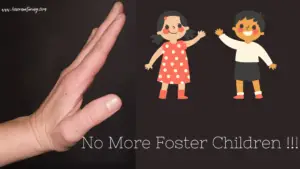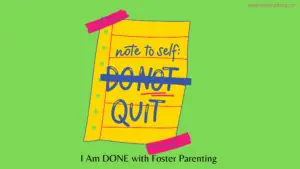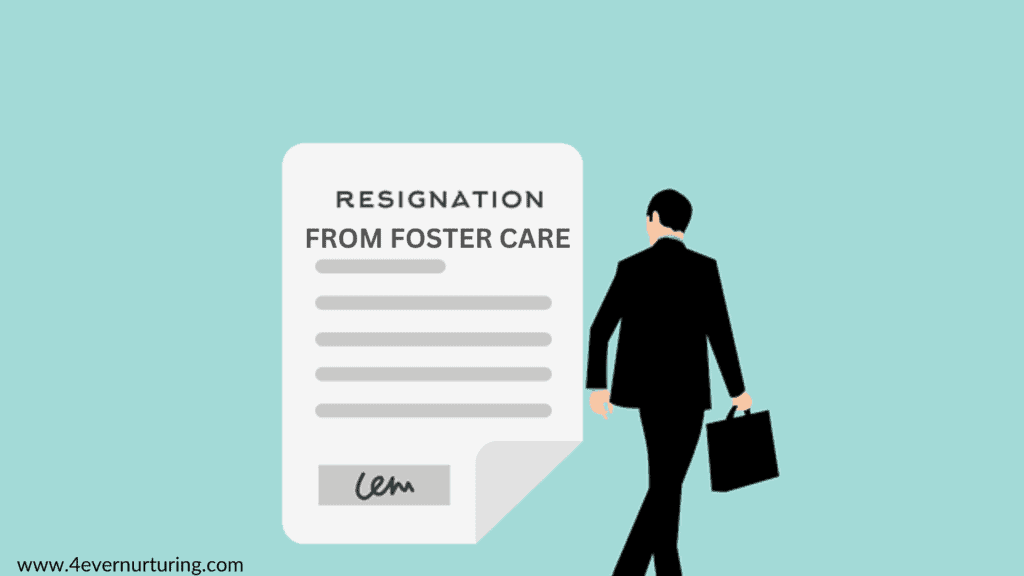The urge and passion to help children are among the multiple reasons why people join the foster care system. While some are joining the program, others are leaving it. The reason why foster parents quit the program on the other hand is unknown to many. Most of the parents who quit foster parenting tend not to talk about it. Sharing experiences can change a lot of things and enable a person looking forward to joining the program to have a bigger and better picture.
So, why would someone stop doing something others are planning on doing? Why is it that 50% of foster care parents are no longer interested in continuing to be part of the program? There are various reasons why foster parents quit, especially within their first 12 months. Some might be personal while others might be part of the common reasons. A big percentage of foster care parents quit because of common reasons. Just a small group of like 2 in 10 foster parents leave because of personal reasons. Some of the major reasons are: the broken foster care system, lack of support, inadequate training and education, lack of consultations with foster care specialists, and not being prepared.
Foster parenting is among the best services a person can offer to the state. This is because a person commits to taking care of a child who is not his or hers by birth. These children come from unsafe families and they are often traumatized.
The Main Reasons Why Foster Parents Quit
Deciding to stop doing what you once loved is a hard decision. It requires a person to be firm and be on the same page with both his conscious and unconscious self. Doing this prepares and makes the person psychologically stronger hence won’t end up feeling depressed or regretting the decision.
Inadequate Training and Education
Prior to joining the foster care system, a person has to undergo training. Such training is aimed at providing foster parents with the necessary skills that would help them in foster parenting. This is a requirement for joining the foster care system hence a necessity in almost all states.
Some of the training is often not in-depth hence being inadequate. Although this is not evident at the time of training, the reality checks in once a person has started fostering.

At times having the concept is not enough and foster parents wish they know more or have someone teach them.
Training and providing foster care education are among the responsibilities of foster care agencies. Even with this in mind, many agencies end up providing poor-quality training to prospective foster care parents.
Concerning inadequate education, some foster parents assume that they were trained and equipped with the required skills hence don’t need to increase their knowledge. They forget that the world is changing and some of the ways of solving foster parenting issues have become obsolete.
As a result, not keeping themselves updated or continuing with foster care education places them in challenging positions. They are unable to take care of foster children as required and as a result, stop fostering.
Lack of Support
In foster parenting, support from foster care agencies and the community is important. Without it, foster parenting becomes more of a challenge and a nightmare for some foster parents.
After training foster parents, foster care agencies are obligated to support them. This is giving advice and facilitating any process while fostering children. Their work is not just placing a child under foster care and coming to pick them up after the period has elapsed. They are required by law to provide continued support.
Even after being required to do so, some do not offer the necessary support. You might call a caseworker to request assistance with something and they end up not picking up the call. In some instances, they might promise to call back with full details about an issue and they end up not doing so. This commonly happens to parents or families who are under local authority. Although it does happen in agencies, when compared to local authorities, they are better in terms of support.
The community may also not support you as a foster parent or family. People have different perceptions of foster parenting and having a foster child can change how the community sees you.
Many do not understand the concept of foster parenting and why a person would commit to taking care of children from troubled families.

This does not mean you have the duty to make them understand although you might decide to. As it’s well known, do what you know is the right thing and leave the rest to God.
Because of a lack of support, foster parents end up not getting someone to talk to and feel like the odd ones in the community.
Broken System
Many people find asking themselves if the foster care system is broken. Well, it is for some while for other people it’s not.
How would they determine if the system is broken? and why would someone say that?
Some of the main reasons behind the system being said to be broken are:
- Ruling blindly without applying context. This happens even after a court has made it clear that something should not happen within the fostering period. The agency or caseworkers will often go against this.
- People get into the system because of the compensation, not the drive to help children.
- Dumping liability to foster families even in instances where the agency or local authority is liable.
- Caseworkers and agencies proving limited information about the foster child to foster families. The foster families end up realizing things days or months after the child is under their care.
- Secrecy and wanting foster parents not to question their actions or decisions.
- Foster parents lack say in a foster child’s well-being.
Lack of Consultations with Foster Care Specialists
In the program, foster care specialists play a crucial role. They help in handling questions or topics that cannot be handled by other people in the foster care program. Possessing intensive knowledge about foster care is what makes them special.
Some foster parents quit the program because they are unable to get assistance from these specialists. Although they get the support they need from the agency and case workers, it’s not sufficient to address their issues.
Without help from such specialists, foster parents feel helpless especially when faced with challenges that they have experienced and don’t know how to handle.
Not Being Prepared
Being part of the foster care program requires a person to be prepared. Not only physical space for the child but also psychological, mental, emotional, financially, and spiritual. This is because you will not be dealing with a “normal child”.
Foster children come from troubled families and some might be traumatized. This is why they require different parenting techniques hence the reason for you being trained and educated on foster care.
Not being prepared to manage traumatized children or children who have had unfriendly pasts makes it difficult for foster families to continue with the program. What they expected might not be what they found hence they end up terminating their foster care agreement.
Although knowing what makes a good foster parent might help you in this situation, it might not be enough.







